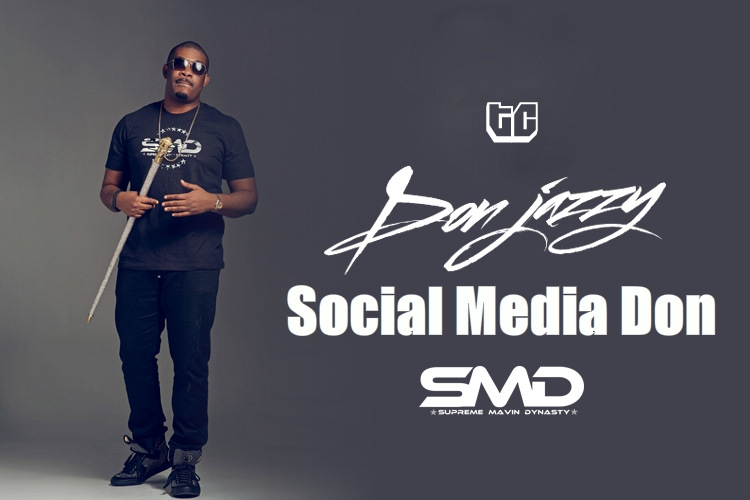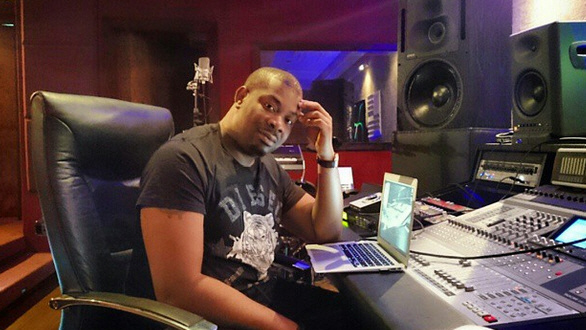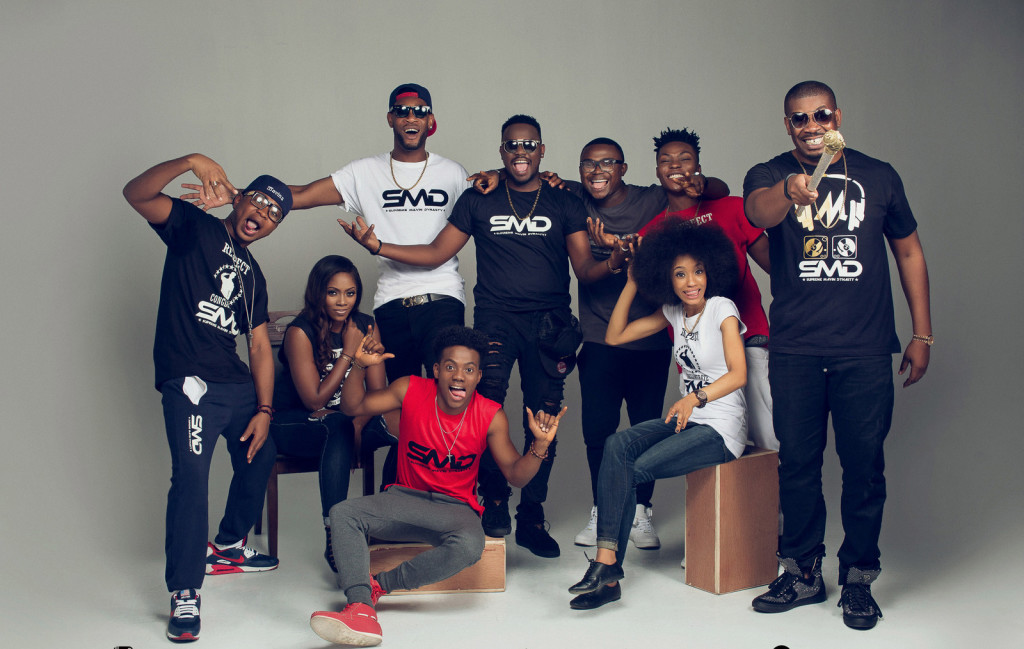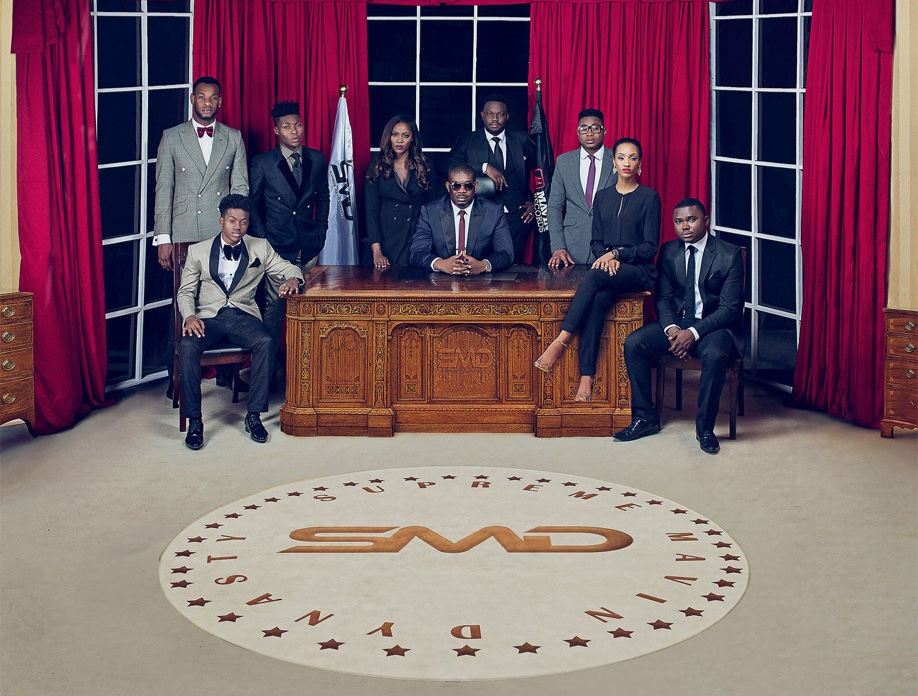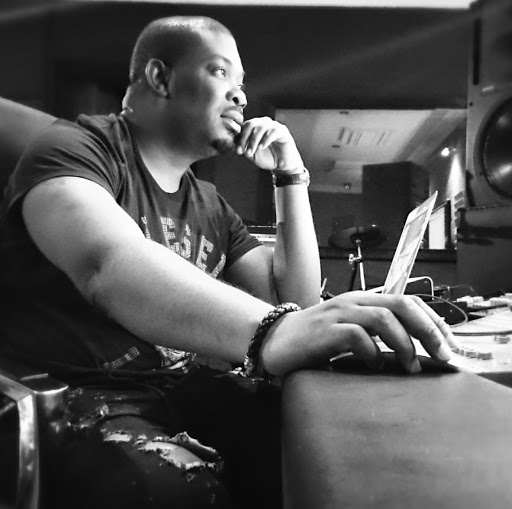“Social Media is powerful,” but often times when we say that, it could be hard to put a picture to it.
For a big shot Nigerian music producer who does not test well at public speaking and has a peculiar case of camera shyness, the social media becomes the place where his voice rings out and commands other social natives to follow.
“When I started using Twitter, I quickly realized the power of communicating directly with fans. Ever since then I have been finding creative ways to use social media to engage fans,” Don Jazzy tells TechCabal.
Don Jazzy (real name Michael Collins) is a music producer, artiste, and THE supreme leader of the Supreme Mavin Dynasty (his music label). When we think of the strength of social media, we can think of all the “bottled up appreciation” we may never have gotten from Don Jazzy; easily the most accomplished producer in the Nigerian music scene and, one of the most influential Nigerian celebrities on Twitter.
In this interview, Don Jazzy talks about how he is using social media to engage the Nigerian music scene and what he thinks about digital music and the future of music in Nigeria.
TechCabal: Social media is obviously very important to you. To the point that you went as far as actually creating one — Mavin League, it was called. What made you become as interested in social media as you did?
Don Jazzy: Well, I think it was a way to let out so much appreciation bottled inside me. There was no other way for me to let my fans know how much I felt about their relentless support for me and my team. There was no other way because I am not a fantastic public speaker plus I have camera shyness. When I started using Twitter, I quickly realized the power of communicating directly with fans. Ever since then I have been finding creative ways to use social media to engage fans. The world has gone digital and anybody or brand not on the train now has carried major last. LOL.
You spend so much time posting content to your networks and replying people. Do you do it all by yourself? How many hours do you think you spend on social media every day?
Yes I do it all by myself spending an average of one hour a day. I don’t think anybody can handle my personal social media platforms like I do. I think my fans can even tell if a tweet doesn’t sound like me.
All your social media outposts are on mad fleek, but which network do you enjoy using the most?
I use Twitter the most. It has a uniquely fluid way of allowing one to communicate with all your followers and specific followers simultaneously. Most recently though, Instagram has become a great platform to visually communicate with our fans. We rely heavily on Instagram hashtags to see how fans are consuming our songs. The #Doro movement really began on Instagram and most recently Godwin passed 80,000 hashtag posts, the best of which our digital team turned into a social media music video. With our most recent release #Kabiyesi, we are experimenting with these new types of hilarious videos we are calling viral mashups.
Beyond Twitter and Instagram, I also experiment with other networks.
How important is social media to what you do? How do you use it? Would anything be different if say you didn’t use social media?
Social media has evolved into an important component for myself and the label. In total, we reach over 6.5 million fans daily thanks largely to the six amazing artistes we have; Tiwa Savage, Dr. Sid, D’Prince, Di’Ja, Reekado Banks and Korede Bello. We use social media to announce new songs from which we get real-time feedback. With real-time feedback and sentiment analysis, we can sense if a song will be a massive hit record within a few hours. Without social media, this would not be possible.
These platforms also give myself and the artistes an avenue to keep fans up to date with our activities on a daily and sometimes real-time basis. It has become so important that we recently brought in Tunji Afonja. He is our Chief Digital Officer and oversees all our social media and digital platforms. We are active on nine platforms, ranging from YouTube to Instagram. This will increase to over 12 platforms within the next two years. We need to manage, grow them and harness the plethora of data about our listeners and fans, helping us make more informed decisions.
Speaking of business strategy, the new buzzword in music now appears to be “digital” — Spotify, Apple Music, Tidal, Spinlet, iROKING — how should African musicians react to digital distribution, especially from a commercial standpoint?
This is one of the main reasons we now have a Chief Digital Officer. These digital platforms are now becoming the primary distribution channel and show promise for good revenue through streaming royalties. From our perspective, we are looking to master the use of these platforms and figuring out creative ways to use them.
I can’t remember the last time I bought a CD, and most people I know acquire their music via digital means. Is this true of your audience? How would you say your audience base consume your music the most, physical or digital?
It is pretty much more digital now across platforms that include YouTube, iTunes, SoundCloud, Spotify and MyNotJustOk. But at the same time there are still CD users in Nigeria so we can’t write that off just yet.
Asides from being a talented artiste, you are also an astute business man. Somehow, the Mavin League (not the social network) is thriving in spite of all the controversy around how online and offline piracy make it hard for artistes to survive. How should African musicians position themselves to succeed in an age where people seem to be more interested in free content? What business models should they be looking at?
Releasing music for free allows an artist to grow to the point that he/she can start generating revenue from performances. Performances at shows and private events are the primary means that artists make money in Nigeria. At this point, revenue from platforms like Spotify, iTunes and Youtube still have ways to go due to the internet data limitations and low card users we have in Africa. Once we overcome this data hurdle and Africans really embrace cashless shopping, I believe artists will generate more revenue as they will release their music through subscription based platforms that pay them streaming royalties. We hope in the near future these streaming platforms will be the preferred way consumers choose to get their music as opposed to downloading from websites.
If today, you were a mad talented but unknown musician that is yet to “blow” — knowing all the things you know now, what would you do to get noticed?
I would find a way to stand out in social media as I showcase my talent. FalzTheBahdGuy with his “Broda Taju” alter ego Instagram videos turned him into a sensation. More recently, a talented guitarist named Godwyn was posting some of his renditions on Instagram which I ended up discovering. Within 48 hrs, we had him at Mavin studio recording and releasing “Promise”. He has gone on from there to get paid performances and continues to establish himself. Mavin artist Reekado Banks was discovered via Twitter. Linda Ikeji worked hard and smart and is the biggest online personality today. You don’t need a prophet to tell you that social media is the fastest place you can get noticed today. Don’t be in a hurry to get a million fans in a day. As long as you are doing something right, your fan base will grow daily even if it’s 10 new people that you convert each day. Before you know it the right person will notice and the rest will be history.
What has been the most defining technology that has revolutionized production and distribution of music in Nigeria in the past, say, ten years? You’ve been on the Nigerian scene exactly that long.
I would say YouTube. It has allowed our music to be seen and heard worldwide.
What do you think is the future of digital music in Nigeria and Africa? Do you think Africans are ready for music streaming services? Are the artistes ready for new digital distribution models?
Artistes will have to adapt to whatever model the market dictates. I think streaming services are very compelling but until we solve the internet data issue, streaming services will have a tough time gaining traction in Africa . To give you an idea, when we release music videos on YouTube, we have to provide a download link to save users with limited data plans from having to re-stream in the future. I believe once a majority of the population can get access to more data cheaply, the Nigerian music industry will grow massively in the digital space.
Bankole Oluwafemi contributed to this post.
Image(s) via Don Jazzy’s media office.









